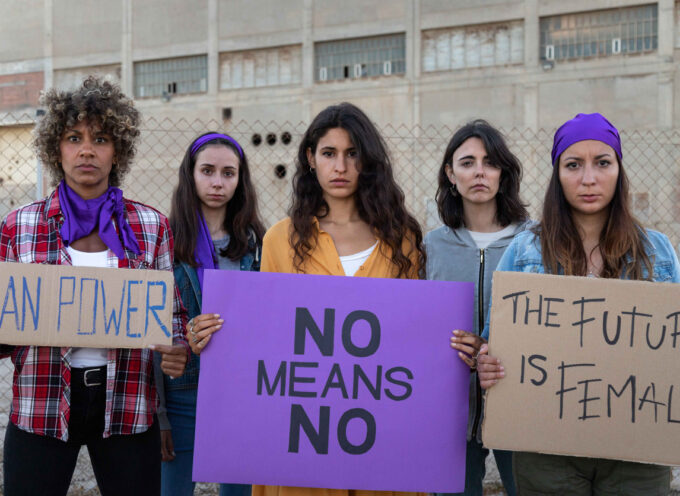In response to the widespread outcry against immigration policy that separates parents from their children at the U.S.-Mexico border, Attorney General Jeff Sessions defended the policy by stating that it is consistent with the Bible’s teaching.
In a speech to law enforcement officers Thursday in Fort Wayne, Indiana, Sessions stated:
Persons who violate the law of our nation are subject to prosecution. I would cite to you the Apostle Paul and his clear and wise command in Romans 13 to obey the laws of the government because God has ordained them for the purpose of order. Orderly and lawful processes are good in themselves and protect the weak and lawful.
Soon after, White House Press Secretary Sarah Huckabee Sanders reiterated Session’s sentiment, saying to reporters, “It is very biblical to enforce the law.”
But is it really “biblical” for Christians to acquiesce quietly to all government laws and policies?
An examination of Paul’s writings makes clear that the answer is “no.”
On the one hand, Paul made abundantly clear that a Christian’s ultimate allegiance is to Christ and his law rather than Caesar and Roman law. To the Christians in Philippi (a Roman colony), he wrote that every Philippian citizen would one day bow the knee to Jesus and confess that Jesus—not Caesar—is Lord (Phil 2:10). To those in Colossae, he wrote that Jesus was the one who created the universe and held it together, and who would one day return to renew and restore the fallen universe over which he is Lord (Col 1:15-20).
But on the other hand, Paul didn’t want Christians to become anarchists, to ignore the laws of the land, and that is why he declared that Christians should make themselves “subject to the governing authorities” (Rom 13:1). So Paul was not telling Christians to acquiesce quietly to all laws and policies of the Roman government, including unjust or immoral ones. Of course not.
Paul is saying, in effect, “Look, it’s true that Jesus is the ultimate Ruler of a cosmic Kingdom while Caesar is only the temporary ruler of a limited earthly kingdom. But that doesn’t mean you’re above the law. You should be a good citizen and obey the law except, of course, when God’s law conflicts with Caesar’s law.”
And in our own context, in a democratic republic such as the United States, part of our responsibility as citizens is to criticize unjust laws and policies and work to have them changed. Richard Mouw puts it well:
In modern democracies the power of national leaders is derived from the populace, which is the primary locus of God-given authority. Built into the very process is the possibility of review, debate, reexamination, election, and defeat. Given such a framework, for Christians simply to acquiesce in a present policy is to fail to respect the governing authorities.
For Christians living in the United States, therefore, Paul’s instruction to be subject to the governing authorities means that we should work for change when our government’s laws and policies do not reflect God’s best intentions for our society.
Does the current administration’s family separation policies reflect God’s best intentions for our society?
In brief, no.
In our polarized climate, public outrage often obfuscates more than it enlightens, so it’s helpful to set the facts straight. As Rich Lowry noted in the National Review, for years, illegal immigration involved mostly single Mexican males. Recently, however, the influx has shifted to include family units fleeing from violence in countries such as El Salvador, Guatemala, and Honduras.
As Lowry goes on to outline, the Trump administration hasn’t changed the rules about family separation. Even in previous administrations, children could be separated only if the adult is lying about being the child’s parent, if the parent poses a threat to the child, or if the parent is tried for a crime.
It is the last scenario—a parent being tried for a crime—in which the Trump administration is applying the rules differently than previous administrations. It is prosecuting all adults who enter illegally. The criminal proceedings are generally quite short. If the adult wants to return to his nation or origin, the child and adult may do so immediately. However, if the adult files an asylum claim, things get more complicated.
Asylum claims are more complicated because of a series of policies and court rulings implemented during previous Democratic and Republican administrations. One of those legal agreements is the Flores Consent Decree (a legal agreement struck by Bill Clinton’s administration), which forbids the government from detaining undocumented immigrant children for longer than 20 days. Given that asylum proceedings almost always last longer than 20 days, the government must decide whether to release the adult and child together, or to detain the adult while releasing the child.
One the one hand, the challenge associated with releasing the adult and child together while waiting for the asylum claim to be settled is that, if the adult is denied asylum, the chances of every finding that adult again are rather small. Given the New York Times’ report that a number of detained adults, some of whom are smugglers, have admitted to posing fraudulently with children who are not their own, and given a Washington Post’s report that White House officials have seen a 315% increase in such fraud just this year, the co-release of adult and child is problematic.
On the other hand, the challenge with detaining the adult while releasing the child is to find a way to “release” the child without “separating” the child from the parents. Under Flores, the government should first seek to release children to their parents and, if that is not possible, to other adult relatives. If both of those options fail, the Flores Decree instructs that the government should release them to a licensed program or another minimally restrictive setting.
What type of policy would better reflect God’s best intentions for our society?
In brief, a policy that upholds both justice and mercy by detaining the parent and releasing—but not separating—the child.
The reality of family separations at the border presents us with a profound moral, ethical, and spiritual crisis. Do we believe that it is right, just, and merciful for America unnecessarily to take children away from their parents, children who did not make the decision to come here in the first place?
It is neither right nor just nor merciful. God’s design, as Senator Lankford so saliently noted, is for families to be kept together, even if those families are composed of undocumented immigrants. The Bible tells us that all people are made in God’s image, and are therefore inherently worthy of justice and mercy. Time and again, the Scriptures instruct us to care for the sojourner and treat him justly. Leviticus 19:34 says, “You shall treat the stranger who sojourns with you as the native among you, and you shall love him as yourself.” This moral imperative is reflected also in Jesus’ command for us to love our neighbor as we love ourselves.
How we treat the most vulnerable among us reveals what our values really are and what kind of nation we aspire to be. For Americans in general, and for Evangelicals in particular, the opportunity to keep families from being separated is not just something to consider. It is a biblical and moral imperative.
The best option, the one that upholds both justice and mercy, is for the government to detain the adult and release the child, all the while accommodating them together in shelters. The challenge with this option is that ICE has less than 3,000 family spaces, not nearly enough to accommodate the influx of immigrant families.
Congress can meet this challenge and they can do so quickly. As Rich Lowry argued recently in National Review, Congress can change the rules so that the Flores decree is inapplicable and it can expand the budget for family shelters at the border. This is an obvious solution that can be enacted immediately and that upholds the twin imperatives of justice and mercy.
Does the biblical imperative of mercy imply that we must support open borders?
No.
The biblical imperative to neighbor love does not imply that we must support open borders. Nations have the right, and in most cases the responsibility, to secure their borders. As I have argued elsewhere, the President and Congress should work together to secure the borders immediately. Failure to secure the borders undermines the rule of law and sends mixed signals to persons who are considering entering our nation illegally.
While securing the borders, we must also enact new immigration laws and policies that uphold our nation’s aspiration to be both just (in recognizing that undocumented immigrants have broken a law) and merciful (in recommending a penalty that is humane and appropriate). Justice and mercy are both central to the Christian faith, and thus they should be central to our treatment of immigrants and asylum-seekers.
What should everyday American citizens—especially Christians—do?
We should act.
In light of the current situation, therefore, and the twin imperatives of justice and mercy, we should make our voices heard to the President, the Attorney General, Congress, and our fellow citizens.
Now is the time. Politico reports that President Trump will huddle with conservative lawmakers Tuesday evening to clarify his support for legislation protecting Dreamers. And no doubt they will discuss the family separation policy.
Whether we do so through a letter to our Congressman, a Facebook share, a website post, or a coffee shop conversation, we should make our voices heard. The Southern Baptist Convention has done so through a resolution. Congressmen James Lankford (R-OK), Mark Meadows (R-NC), and Paul Ryan (R-WI) have each done so. And we as citizens should back them up by making our own voices heard.
It is the right thing to do, both for our nation and for immigrant families and asylum seekers. And it is an especially fitting thing for Christians to do, given our expectation that Jesus will return one day to rule over a kingdom that includes worshipers from every tribe, language, and nation (Revelation 5:9). Many immigrants will one day be—and in Christ already are—citizens alongside of us in the City of God.
Subscribe
Never miss a post! Have all new posts delivered straight to your inbox.








God did not create borders. But he may have created nations. Interpreting the scriptureshas led man to choose what he wants to believe and then insist that he is the only one to get it right.
I think you are wrong..cities in biblical times had cities encased with “borders” to keep them safe…they knew that no one was there to do them harm.
So when an American mother is caught shoplifting at Walmart, her children should not be taken away from her, but go with her to jail?
Hundreds of American children are taken from lawbreaking American parents daily in this country. Daily. And thousands of them are in group homes that are not up to standards. Where’s the outcry for the American Children? Hypocrites!
Children do not choose who they are born to. We are ALL children of God! Children, American or otherwise, should have laws that protect them.
May God continue to bless and keep Donald Trump. The Almighty has given us the grace of a strong and sober leader in a world driven by madness and hysteria.
The job of the President is not to protect the interests of foreign invaders. The fact there are many evangelicals foolish enough to defend illegal aliens using their children as a tactic to get free entry to our nation is quite telling of how lost they truly are. They serve the god of political correctness, not the God who has provided governments and laws as a way to provide a (temporary) peace to the nations so that the gospel may be preached and the fullness of the nations may find salvation in Christ before His impending Day of Judgment.
This foolishness ultimately stems from gullibility and faithlessness. The reality is far different from what fake news purports—illegal crossings are what endanger these children, not ICE Summer Camp. Every “child” separated from his parents was first endangered by said parents who decided to break American law and sneak into the US illicitly. These children are often marched hundreds of miles at the risk of being kidnapped by drug gangs or are crammed into the back of a hot trailer often to die. Spare me the crocodile tears regarding the air-conditioned detention centers.
Of course the hypocrisy against the United States president is breathtaking. Think what would happen if an American family of four got caught trying to sneak into Mexico without crossing a proper checkpoint so they could take advantage of welfare or economic benefits. Think about how disrespectful that would be to the people of Mexico. The people of the United States deserve the same level of respect.
The wall must be built, and the United States must put its foot down. We will no longer be the outlet for (a very godless and pagan) Latin America and its myriad problems. The corruption and violence we cannot import; we owe it to our children to maintain for them a peaceful and unified country.
Romans 13 certainly applies. Sessions, a godly man, is correct to apply it. There are other passages one could point to, including the book of Philemon, to show that authority should be obeyed. Any rationalization against this comes from an anti-Christ spirit.
Know this: those who fail to understand the necessity of laws and sovereign governments for distinct people-groups (which necessitate borders and punishment for invading foreign countries) are the same ones who fail to understand the implication of Revelation 21 and the separating the sheep from the goats.
May God wake us all up, because His day is coming soon and our only salvation will be if we are clothed in His garments. God certainly discriminates, and nations and churches which fail to won’t bear much fruit.
No.
Thank you for your forthright and and reasoned commentary on this burning issue. It is actually possible to enforce our nation’s immigration laws without terrorizing parents and children and separating families. It takes a special effort, though, and the commitment of adequate resources.
And ask yourself whether if these people were white, whether we would be treating them like this.
As has been done throughout history, the AG just twisted the Scripture to suit his wants/needs…